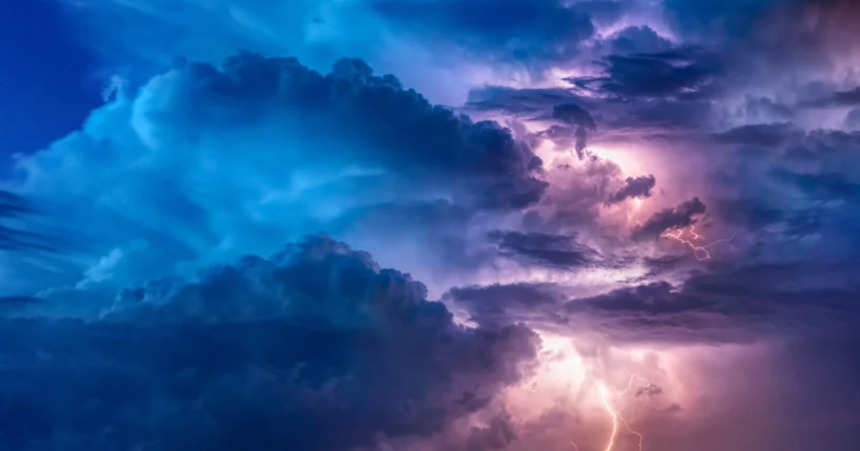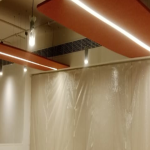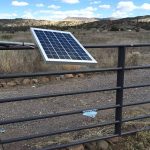Snow in Houston? Hurricanes in Galveston? Extended power outages statewide? Texas weather doesn’t play by the rules.
When Mother Nature throws her worst at the Lone Star State, smart business owners need plans that won’t buckle under pressure. Nobody knows this better than Dr. Tony Jacob.
“We weathered a whole bunch of storms in 2020. I remember watching our businesses get shut down,” he recalls.
Expect the Unexpected
Remember February 2021? The winter storm that knocked out Texas’s power grid didn’t care how successful your business was. The economic impact was staggering—between $195 billion and $295 billion according to estimates from the Perryman Group. Dr. Tony Jacob watched helplessly as his healthcare network ground to a halt—facilities closed, appointments vanished, staff couldn’t travel safely, and critical infrastructure failed simultaneously.
The timing couldn’t have been worse. His company already had its hands full with pandemic protocols when winter unleashed its fury. “Gosh, we had a ransomware attack. I mean, we were hit with an onslaught of things that are really tough to get through as a business, but we did,” he explains. His ability to keep the lights on (sometimes literally) through overlapping crises reveals why serious continuity planning pays dividends when disaster strikes.
“I think I pride myself and my team, we were able to work through some of these challenges,” he reflects. This mindset—focusing on solutions rather than dwelling on problems—proved essential when facing unpredictable Texas weather events.
Build Your Business Like a Storm Shelter
Want to know why Dr. Tony Jacob’s optometry empire survived Texas-sized weather disruptions? He built resilience into the foundation before dark clouds gathered.
“Things change—people, markets, situations. Leaders have to be willing to shift with them,” he explains. He didn’t leave crisis response to chance. His team implemented the Entrepreneurial Operating System (EOS) across all locations, creating playbooks that held steady when everything else went sideways.
The brilliance of his approach? Every team member knew exactly what to do when communication broke down during weather emergencies. No waiting for headquarters to call the shots. His clinics could restart operations quickly once immediate dangers passed because they’d rehearsed these scenarios beforehand.
Great systems need great people behind them. Tony hammers home that personnel selection becomes make-or-break during disasters. His teams could solve problems independently because he’d built that capability during blue-sky days. Each location could address local conditions without waiting for permission slips from corporate.
Cash Flow Weatherproofing 101
Weather disasters destroy your operations today and threaten your balance sheet tomorrow. Dr. Tony Jacob recommends financial strategies that keep businesses afloat when storms hit.
“One of the things that we set for our private investments is we’re looking for a 20 [internal rate of return] minimum is our baseline,” he notes. This disciplined financial mindset served him well when building weather resilience into his own business. Translation: Keep enough cash on hand to survive extended revenue droughts. Many Texas businesses learned this lesson the hard way during weather emergencies—their bank accounts ran dry before operations could restart.
Insurance matters tremendously. Standard policies cover basic risks, but Texas businesses need specialized protection for regional threats. Coastal operations? Get hurricane coverage. Inland locations? Think about tornadoes and flooding. Generic coverage leaves dangerous gaps when regional disasters strike.
Geographic diversification saved Dr. Tony Jacob’s business repeatedly. With eleven locations scattered across different Texas communities, his network could absorb temporary closures without threatening the entire enterprise. When storms hammered one location, others continued generating revenue—natural insurance against localized weather events.
Crisis Management as Competitive Edge
Texas businesses that handle weather catastrophes well don’t earn gold stars—they gain market advantages that outshine competitors. Dr. Tony Jacob discovered that effective crisis management builds customer loyalty that no marketing budget could buy.
“If I’m the only one leading, I’m doing something wrong,” he declares. This philosophy became particularly valuable during weather crises, when each location needed capable decision-makers who could respond to local conditions. His practices communicated honestly with patients about closures while creating alternative care options whenever possible. Patients remember who stood by them during difficult times long after fair-weather businesses fade from memory.
The resilience baked into Tony’s business model ultimately attracted buyers willing to pay premium prices. “We had a huge pipeline and runway to continue growing and helping manage more offices,” he notes, despite weathering multiple crises. Potential acquirers recognized something valuable: businesses that maintain growth through cascading disruptions demonstrate extraordinary operational strength.
Texas entrepreneurs who follow Dr. Tony Jacob’s example can build businesses that don’t just survive disasters—they emerge stronger through them. Solid systems, adaptable teams, and financial safeguards transform weather challenges into opportunities that showcase a business’s dedication to its community through thick and thin. With natural catastrophes ranked as the third-most concerning risk to businesses according to a 2025 Allianz report, preparation is essential for long-term survival.















